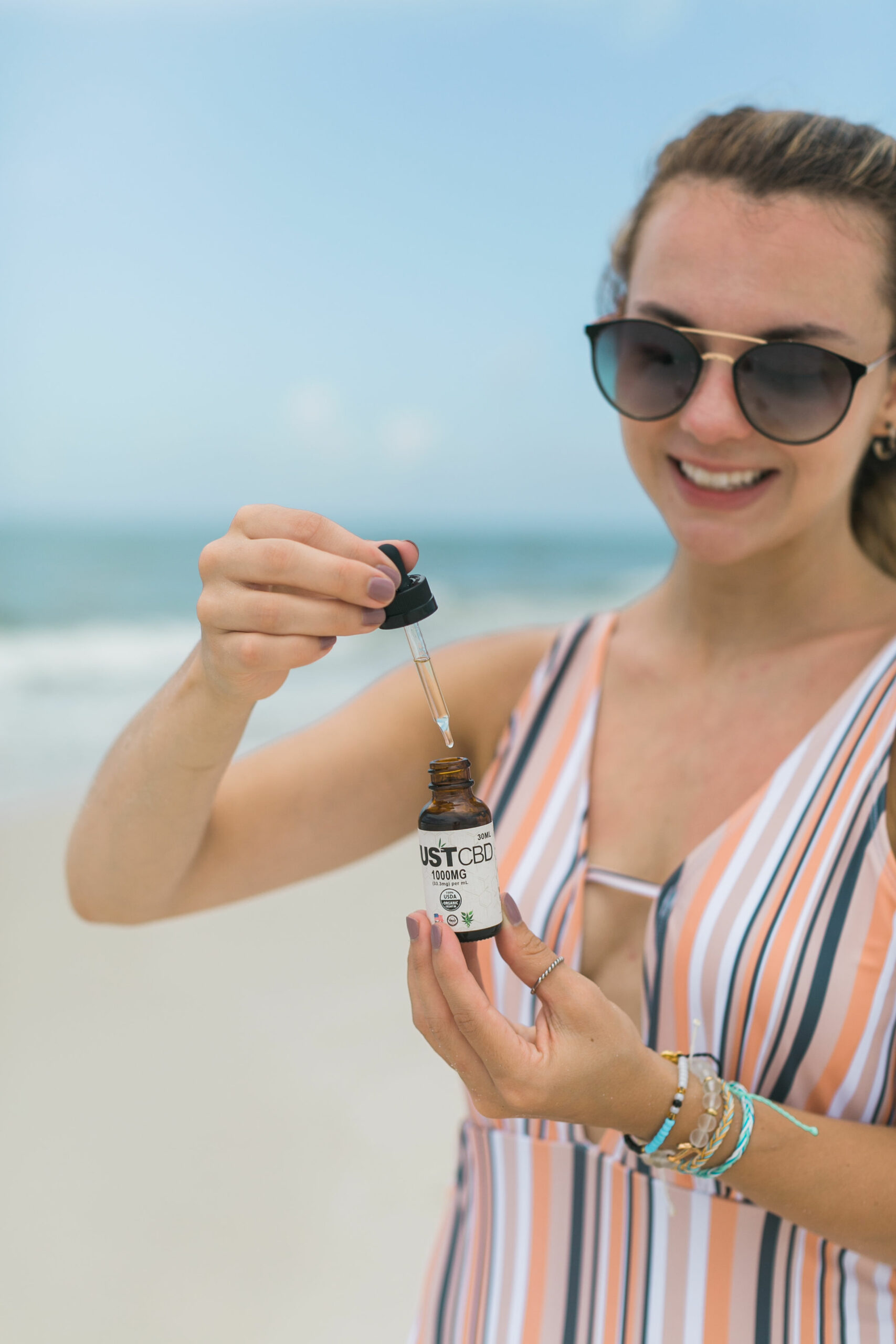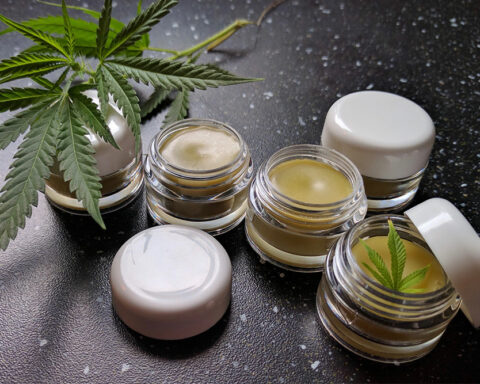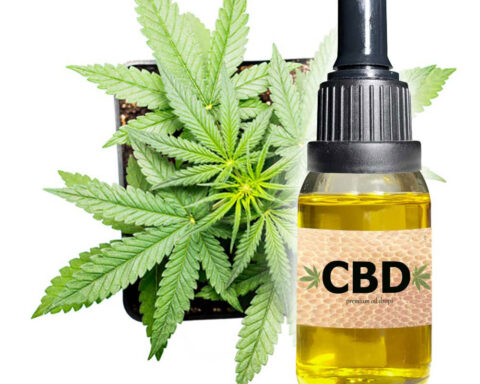CBD has attracted much hype and buzz, and the demand for CBD products like CBD oil is increasing. The cannabinoid is touted to have various benefits, and many people use it to manage pain. Nonetheless, there is insufficient scientific evidence to justifiably claim that CBD oil might help with pain, especially because CBD studies are at the infancy stage. Still, if you choose CBD oil for any pain, consult your doctor firsthand to know what dosages you should take, the possible side effects, and interaction with some medications. If you want to take CBD oil for pain, you have a wide assortment of products to wade through, including CBD oil and CBD creams. Learn more about CBD oil and creams, how they compare, and what you need to know about CBD oil before trying any of its products below.
CBD Oil- the Basics
CBD is a hemp derivative and one of the many active compounds called cannabinoids in hemp plants. Unlike THC, CBD oil does not make users high unless its total THC exceeds 0.3% THC. CBD oil is made into edibles, softgels, vapes, topicals, tinctures, pet items, smokables, CBD creams, and oils. Most of the forms of CBD come in one or more of the following three types of CBD;
Isolate-based CBD Oil
This is a pure form of CBD and has no other compounds other than CBD. Many prefer this formulation for its flavorless and odorless nature since it does not have terpenes and flavonoids that give CBD products the characteristic earthy taste and smell.
Full-spectrum CBD Oil
This oil features terpenes, flavonoids, THC, CBD, and many other cannabinoids and is linked to a full entourage effect because of these cannabinoids. However, it doesn’t make users ‘high’ unless its total THC concentration exceeds 0.3%.
Broad-spectrum CBD Oil
It has as many components as full-spectrum CBD oil. However, it lacks the psychoactive THC and is linked to the full entourage effect.
CBD Oil for Pain- What Studies Say
Generally, research on CBD oil for different things is limited, and we do not have enough scientific evidence to credit CBD oil for pain management or treatment. Still, anecdotal evidence and early research claim that CBD oil might relieve pain. For instance, a 2016 study by Hammell, et al., (2016) observed that topical application of CBD oil, say in creams, might reduce arthritic pain. Another research by Nitecka-Buchta, et al. (2019) investigated the effect of topical CBD on pain, particularly on the jaws. The findings showed that CBD oil helped the subject experience less pain in two weeks. Mlost & Starowicz (2020) also conducted a study to examine the effect of CBD oil on nerve pain. After topical application of CBD oil, all the participants reported reduced sensations, both the itchy and cold ones and the sharp and intense ones. While these studies provide promising findings, most of them involved small populations that would not make viable scientific assumptions. Therefore, there are not enough scientific grounds for claiming that CBD oil is effective for pain, and whoever chooses this route should consult his doctor firsthand.
CBD Oil Vs. CBD Cream- Which Is Better?
CBD oil and CBD creams are common CBD products. While CBD oil is taken orally, sublingually, or added to food and drinks, CBD creams are topically applied to the affected areas. Taking CBD oil sublingually means you have to bear the bitter taste of the oil and the earthy aftertaste. Contrastingly, you need not bear the taste of CBD in the case of creams since you apply it topically.
CBD Oil Vs. Creams: Dosages
There is difficulty measuring precise CBD dosages in CBD cream as it is in CBD oil. While CBD oil and tinctures come with eye-droppers for measuring CBD oil dosage, some are not calibrated, and even for the calibrated ones, there is the possibility of erring in measuring the drops. CBD creams have no dosages since users apply as much as possible and spread until they realize the expected results. Compared to discreet capsules and gummies that do not need one to measure dosages, CBD creams and oils present unique challenges in measuring dosages.
Best CBD for Pain
The hemp industry is filled with many CBD creams and oils brands, and selecting the best is challenging. There is also a possibility of misinformation on product labels and brands’ websites, and some CBD manufacturers deal in substandard products. Nonetheless, focusing on extraction methods, the source of hemp, quality and amounts of ingredients, and third-party tests helps you get premium CBD products. Here are reputable brands that offer high-quality CBD creams and oils;
- Charlotte’s Web (cream and oil)
- Nuleaf CBD (cream and oil)
- CBDfx (cream and oil)
- FAB CBD (cream and oil)
- Brown Girl Jane (oil)
- Naternal Rescue (cream)
- Medterra (cream and oil)
Using CBD oil for pain is a personal choice, but it is worth noting that there are no recommended CBD dosages. Therefore, consulting your doctor beforehand helps you know the best CBD dosages.
Conclusion
Although CBD oils and creams have been used for a long time to manage pain, there is not enough scientific evidence that the cannabinoid helps with pain. More advanced studies are necessary before recommending CBD oil for pain. Meanwhile, if you choose CBD oil and creams to relieve pain, consult your doctor for dosage instructions and information on the possible drug interactions between CBD oil and other pain medications.
References
Hammell, D. C., Zhang, L. P., Ma, F., Abshire, S. M., Mcilwrath, S. L., Stinchcomb, A. L., & Westlund, K. N. (2016). Transdermal Cannabidiol Reduces Inflammation And Pain‐Related Behaviors In A Rat Model Of Arthritis. European Journal Of Pain, 20(6), 936-948.
Mlost, J., Bryk, M., &
Starowicz, K. (2020). Cannabidiol For Pain Treatment: Focus On Pharmacology And
Mechanism Of Action. International Journal Of Molecular Sciences, 21(22),
8870.
Nitecka-Buchta, A., Nowak-Wachol,
A., Wachol, K., Walczyńska-Dragon, K., Olczyk, P., Batoryna, O., … & Baron,
S. (2019). Myorelaxant Effect Of Transdermal Cannabidiol Application In
Patients With TMD: A Randomized, Double-Blind Trial. Journal Of ClinicalMedicine, 8(11), 1886.
- Is Mushroom Coffee Worth the Hype? An Expert’s Take - April 19, 2024
- Missionary Position – Least Likely To Bring You To Climax - April 7, 2023
- Vibrators could put you in Jail - March 31, 2023









